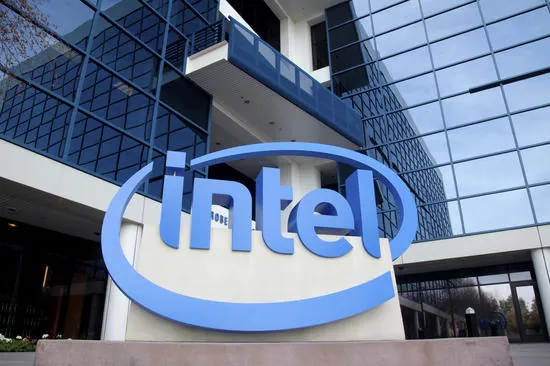
China's Trillions in Deposits: A Lifeline for Hong Kong's Struggling Stock Market
2025-01-15
Author: Wei
China's financial dynamics are shifting, presenting a pivotal opportunity for Hong Kong, which has been grappling with economic headwinds for some time. Despite ongoing social and geopolitical tensions, Hong Kong is ideally situated to cater to the investment needs of the mainland Chinese populace, who are currently sitting on a staggering amount of bank deposits.
With approximately one billion Chinese maintaining bank deposits out of a total population of 1.4 billion, a surplus of savings has emerged. While capital controls are firmly in place on the mainland, Hong Kong enjoys a unique status, with easing restrictions from Beijing promoting capital flow through various investment schemes.
At the Global Financial Leaders Summit in November 2024, Chinese Vice-Premier He Lifeng highlighted the crucial role of Hong Kong, stating, "To accelerate the development of our country into a financial powerhouse requires Hong Kong to become an even stronger international financial center." Unfortunately, the reality is that Hong Kong's stock market has been hindered by a lack of investment demand, as evidenced by several alarming statistics:
A staggering 81% of the 473 companies that went public in the past five years are currently trading below their initial public offering (IPO) price.
The market's average daily turnover has dwindled to HK$128 billion (approximately RM74.2 billion), a marked decrease from figures seen three to four years ago. This is in stark contrast to the mainland’s Shanghai and Shenzhen exchanges, whose combined turnover eclipses Hong Kong's by five to six times, solidifying their status as the world's second-largest stock markets after the U.S.
Over the past decade, the Hang Seng Index has seen a decline of 16%, whereas the S&P 500 index in New York has soared by an impressive 187%.
Discrepancies in share prices between dual-listed Chinese companies reveal further weakness; typically, A-shares on the mainland command an average price 48% higher than their Hong Kong-listed H-shares.
The struggle is compounded by several factors, notably China's economic slowdown—given that approximately 80% of Hong Kong's market capitalization is derived from listings of mainland companies—as well as disruptions caused by COVID-19, external geopolitical tensions, and the lure of the booming U.S. market. The ramifications have been felt across Hong Kong’s financial services sector, which has responded with staff cuts and cost-reduction measures that negatively impact the broader economy.
What could potentially alter this landscape is the increasing trend of capital being exported from mainland China, with Hong Kong positioned as a key offshore service hub. Amid a deep-seated lack of confidence in the real estate sector—once a bedrock for household savings—investors are now pivoting towards bank deposits, which currently make up a significant 46% of total savings. In total, savers have accumulated a staggering RMB137 trillion (about RM84.6 trillion), far exceeding household spending and accounting for over 110% of the national GDP. However, the meager yields of 1.5% to 2.5% on these deposits are prompting a desire for more attractive investment alternatives, setting the stage for Hong Kong and domestic stock markets to capitalize on this newfound interest.
To facilitate this shift, Chinese regulators announced an ambitious "Nine-Point Plan" in April 2024 aimed at enhancing corporate governance and promoting dividends and share buybacks of listed companies. This decisive move appears to be paying dividends.
Additionally, Hong Kong is actively working to create cross-border investment channels that allow capital to flow more freely. The Stock Connect Scheme, which currently accounts for 17% of Hong Kong’s stock turnover, is already set to expand its offerings to include bonds and ETFs, with future prospects suggesting an addition of fixed income and commodities, potentially including gold. An IPO Connect linking Hong Kong’s primary market with the mainland would be a significant development, enabling mainland investors to access Hong Kong IPOs directly.
Other initiatives, such as the Mutual Recognition of Funds (MRF) program, aim to allow retail distribution of funds, with hopes of including mainland insurance companies as eligible investors. The newly implemented Wealth Management Connect scheme specifically targets the Greater Bay Area, allowing residents to invest in cross-border funds directly.
Moreover, Hong Kong is positioning itself as a global leader in the family office sector, with aspirations to surpass Switzerland in this arena by the end of the decade. As the leading center for trading offshore renminbi, the city is diversifying its product offerings to align with the ongoing trend of renminbi internationalization.
Remarkably, the fallout from China's property market woes may inadvertently unlock capital that boosts Hong Kong’s market. Such opportunities may not come again soon, especially with the global asset management stage dominated by Western fund managers who typically hold negative views on Chinese equities, resulting in persistent outflows. While Hong Kong aims to attract investment from Southeast Asia, it faces stiff competition from Singapore, requiring strategic and innovative approaches to woo investors.
In conclusion, the intricate economic relations between mainland China and Hong Kong create a landscape ripe for opportunity, albeit fraught with challenges. As Hong Kong's financial future hangs in the balance, the potential influx of mainland capital may prove critical in reviving its beleaguered stock market.




 Brasil (PT)
Brasil (PT)
 Canada (EN)
Canada (EN)
 Chile (ES)
Chile (ES)
 Česko (CS)
Česko (CS)
 대한민국 (KO)
대한민국 (KO)
 España (ES)
España (ES)
 France (FR)
France (FR)
 Hong Kong (EN)
Hong Kong (EN)
 Italia (IT)
Italia (IT)
 日本 (JA)
日本 (JA)
 Magyarország (HU)
Magyarország (HU)
 Norge (NO)
Norge (NO)
 Polska (PL)
Polska (PL)
 Schweiz (DE)
Schweiz (DE)
 Singapore (EN)
Singapore (EN)
 Sverige (SV)
Sverige (SV)
 Suomi (FI)
Suomi (FI)
 Türkiye (TR)
Türkiye (TR)
 الإمارات العربية المتحدة (AR)
الإمارات العربية المتحدة (AR)